When deciding what to do after military retirement, think beyond a second career. Working full time for the next 25+ years is not your only option. The following stories of your fellow retirees’ experiences will show you that there are alternatives!

Whether military retirement is on the horizon, you’ve recently transitioned, or you’ve been retired for many years, now is the time to think about how and when you will do the things you’ve always dreamed about doing. The things you were too busy to do while in the military. Waiting until you’re 65, until the kids are grown, until the grandkids are in school, or any other arbitrary milestone could be too late.
Now is the time to reimagine life after the military.
It’s nearly automatic for retiring service members to plan for a second career immediately after transitioning to civilian life, but here’s a newsflash: it’s not your only option!
Like many of you, my husband received civilian job offers prior to his retirement from the Army in 2015. Fortunately, we chose to take a gap year (aka sabbatical) to reconnect after all the years of deployments, late nights at the office, temporary duty, and the stress of military life.
In that year, we talked about our quality of life while traveling vs our life with both of us working, barely having time to do anything. It wasn’t even close! We were much happier spending time together, enjoying our day doing the things we wanted, while living a simpler life. And the best part? This lifestyle was much less expensive than living in our previous home in the U.S., and it gave us the flexibility to pursue our interests (both paid and unpaid).
Taking that year off to pause and think about what we wanted to do with the next phase of our lives led us to a completely different mindset. Now, more than 6 years later, we are living on the coast of Spain, and you can read the details of how our journey evolved below.
Other retirees have similar stories about reimagining life after the military: traveling the U.S. in an RV; working on a U.S. military base overseas; cruising full-time in a sailboat; using their GI Bill to study abroad; or fully retiring to a foreign country with a much lower cost of living. These are just a few of the stories I’ve shared below.
Contents (click to expand)
Post-Military Travel
Travel is part of our lives while in the military. After transitioning to civilian life, it’s a relief not to receive orders to move every few years. And yet, for many of us, after two decades of constant change, the idea of staying in one place is no longer appealing or loses its novelty after a couple years in what we thought was a “forever home.”
That’s why so many military retirees want to continue exploring, whether they travel the U.S. in their RV, experience South America by bus, or take military hops to Europe and Asia.
Read the stories below to find out how members of our community took advantage of travel opportunities at various points post-retirement.
Military Gap Years and Travel Immediately After Retirement
Your transition out of the military is a great time to take a break and evaluate what you want to do next. If possible, take advantage of terminal leave so that you are still earning your full active duty compensation during the first part of your hiatus. Either way, taking at least a few months off is a good way to adjust to civilian life after the military.

How We Decided to Travel for a Year Post-Retirement
My husband and I contemplated taking a “gap year” to travel after his military retirement. When we analyzed the pros and cons, it came down to one question: why not? Here’s how we came to that decision.
Using Your Military Benefits to Plan Your Life After the Military
A follow-on to the article above, this post explains how that “year of travel” turned into 6+ years of traveling and living abroad. More importantly, it outlines exactly how using our military benefits made it possible.
A Year of Full-Time RV Living (With Kids) After Military Retirement
After years of overseas assignments, this Army family wasn’t sure where to live after the military. They decided to spend a year traveling the U.S. to figure it out. They enrolled their kids in online public school, bought their first RV, and set out on an adventure to explore the country.
A Career in the Air Force to Adventures in the Andes: 6 Months of Post-Retirement Travel
This couple capped off 28 years of military service with a 6-month adventure in South America before settling back in the U.S. But their travels were not strictly personal. Along the way, they were building their online travel business to set themselves up for their new life as civilians!
Homeschooling for Traveling Families: How to Use “Worldschooling” and Online High School
Despite having two teenagers, this retired Army family can travel any time of year. Their home base is in Texas, where the kids are enrolled in a public online high school. Since the husband retired from the Army, they’ve aimed to travel about 50% of the time, doing everything from Space-A flying to cruising.
This Full-Time Sailing Family is Making the Most of Their Kids’ Pre-College Years
This Navy family is accustomed to life on the water. In fact, they’ve been living aboard a sailboat since 2009, when the kids were both under 4 years old. When mom retired in October 2019, they decided to make the most of their time as a family before the kids – then pre-teens – headed off to college.
Travel Later After Retirement
After a few years living in one place, many military retirees get itchy feet and go in search of their next adventure.
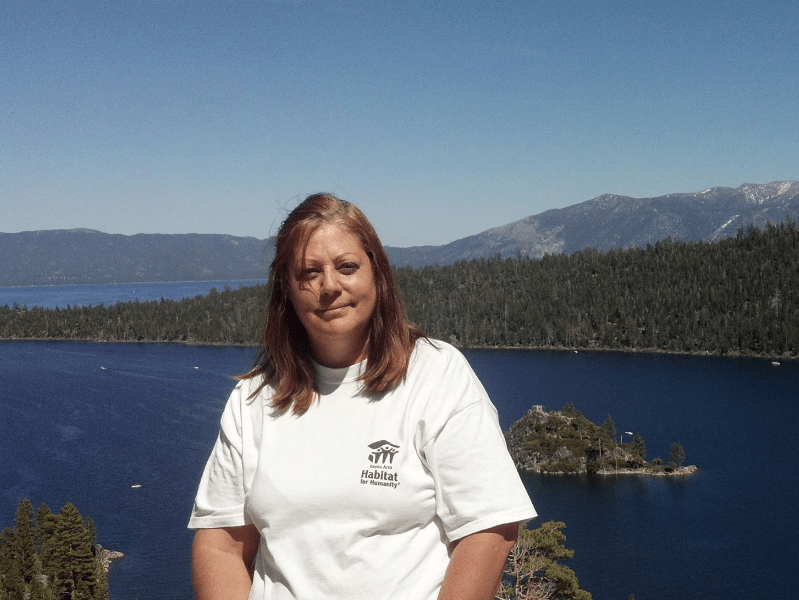
Solo RVing and Full-Time Travel: This Early Retiree is Living Her Dream
Lisa Crawford, an Air Force retiree, had begun her post-military career at a federal contractor. Her plan was to work for 5 years, pay off debt, and then buy an RV to travel the U.S. A series of unexpected events led her to quit her job at 50 and start her travels early. She has never looked back!
Preparing for Full-Time Travel: This This Retired Military Couple is Ready to Pop Smoke!
Six years after military retirement, Ron and Colleen Adams were ready for a new adventure. They sold their house and set off to travel the world. This interview gives “his and hers” perspectives on everything from why they decided to take this leap to what they expected from their travels, what they packed, and what they got from 18 months on the road.

How to Become a House and Pet Sitter
Kim and Kenny Hinson have been traveling the world for years without paying for lodging. How do they do it? They care for other people’s cats! Here, they give the scoop on how to get started with house and pet sitting, what to look for in a house sitting opportunity, and what to expect.
Living Overseas After Military Retirement
The best place to live after military retirement might not be in the United States! There are many reasons why retirement abroad could make sense. You may have job connections from your previous duty station or a family connection if your spouse is originally from another country.
| Related: Join our Facebook group, U.S. Military Retirees & Veterans Living Overseas
There are also lifestyle considerations for living outside the U.S. In many desirable locations around the world, the cost of living is far lower than in the United States, so you can live off your retirement pay or accelerate your savings rate while working.
Here’s how fellow retirees found ways to live overseas as civilians!
Working Overseas
If you loved your overseas duty stations but aren’t ready to retire and travel, why not get a job in another country?

Expat Military Retiree Profile: Living and Working in Vilseck, Germany
Michael Carpentieri retired from the Army Reserve and took a DoD job in Germany when the opportunity arose unexpectedly. He enjoys the best of both worlds: he is part of a local German community, but he also has access to all of the services on a U.S. military base.

Expat Military Retiree Profile: Living and Working in Rota, Spain
Tony Guyette retired from the Navy and transitioned straight into a civilian job at Naval Station Rota. He embraces the slower-paced lifestyle that comes with Spanish culture, and he has plenty of great advice for military retirees who want to make the most of their retirement.

Expat Military Retiree Profile: Living and Working on Yokota AB, Japan
This Air Force family retired in place at Yokota AB, their last duty station. They had fallen in love with Japan and jumped at the chance to stay at Yokota for a few more years post-retirement. This interview has great intel about what it’s like living on base as a civilian and important advice if you are looking for civilian jobs in Japan or anywhere else overseas.

Expat Military Retiree Profile: Living and Working in South Korea
After multiple tours in South Korea, Phylesia Mickens knew she wanted to live there when she retired from the Air Force. So, she extended her final tour at Osan AB, and after retiring in 2019, she simply stayed in Korea, rather than returning to the United States. Find out how Phylesia has been able to travel, study, and work in South Korea and why she chose it as her adopted home!

Expat Military Retiree Profile: Living and Working in Saudi Arabia
Edward Carn retired from the Navy and took a job in Jeddah, Saudi Arabia, working for the Saudi Navy. His original goal was to gain marketable experience in the civilian job market, but he soon realized that his overseas position could offer an accelerated path to full retirement!
(Mostly) Retired Overseas
Moving to a lower cost of living area can make retiring early – either right after the military or well before age 65 – a feasible option.
Obtaining a Non-Lucrative Visa to Live in Spain
This article explains how we got a Non-Lucrative visa (aka “retirement visa”) to live in Spain. Read our tips and best practices for navigating the red tape that comes with this process!
Moving to Spain from the U.S. — What to Do in the First 30(ish) Days
We moved to Rota, Spain in December 2020. Here’s what we did to get settled, obtain residence cards, and rent an apartment. This article includes detailed information specifically about moving to Rota as a retiree.

Retirement in Malta (and Italy): This American Expat Cracked the Code on EU Residence
For Americans wanting to live or travel extensively in Europe, finding a legal way to stay more than 90 days is the major sticking point. Lisa Crawford, an Air Force retiree, found a way. Two ways, actually. She obtained residence in two countries, all the while taking full advantage of the opportunity to travel throughout Europe.
Expat Military Retiree Profile: Moving to Portugal to Fulfill a Dream
Veronica Ondrejech, the surviving spouse of an Air Force retiree, moved to Portugal in pursuit of the dream she and her late husband had shared. She lives in Vila Real de Santo Antonio, a small village in the Algarve region. Her experience has proven that she made the right choice, because expat life in Portugal is everything she and her late husband hoped it would be.

Expat Military Retiree Profile: Living in Medellin, Colombia
Byron Edgington, an Army National Guard retiree, and his wife, Mariah, lived in Boquete, Panama before moving to Medellin. Learn why Panama was not a fit and what they love about Colombia, plus read their candid advice for anyone considering a move overseas.

Expat Military Retiree Profile: Retiring in the Dominican Republic
Donny Chamberland retired from the Air Force as an E7. Rather than settling in the U.S. and working for another 20 years, he and his wife retired in the Dominican Republic (DR). The low cost of living allows them to enjoy the lifestyle they want right away. In this interview, Donny explains how they choose the DR, the logistics of a final military move to an overseas location, and the pros & cons of retiring in the DR.

Expat Military Retiree Profile: Living in Thailand
Daniel Fraley, an Air Force retiree, has no regrets about his decision to retire in Thailand — except that he didn’t do it sooner. He and his wife enjoy a low cost of living, proximity to family, and extensive travel! In this interview, Daniel explains everything about expat life in Thailand, from visas to medical care and how much money you need to retire comfortably.
Expat Military Retiree Profile: Living in the Philippines
John Jackson, Jr., an Air Force retiree, has been living in the Philippines, his wife’s homeland, since 2010. It’s affordable enough that he doesn’t have to work, and they live close to his wife’s family. Read what John has to say about life in the Philippines and the advice he wished someone had given him before moving there.
Studying Overseas
Enrolling in a study program can be a relatively easy way to obtain a visa to live in a foreign country. As a bonus, you can use your Post-911 GI Bill at schools outside the U.S. Read how these retirees made study visas work for them!
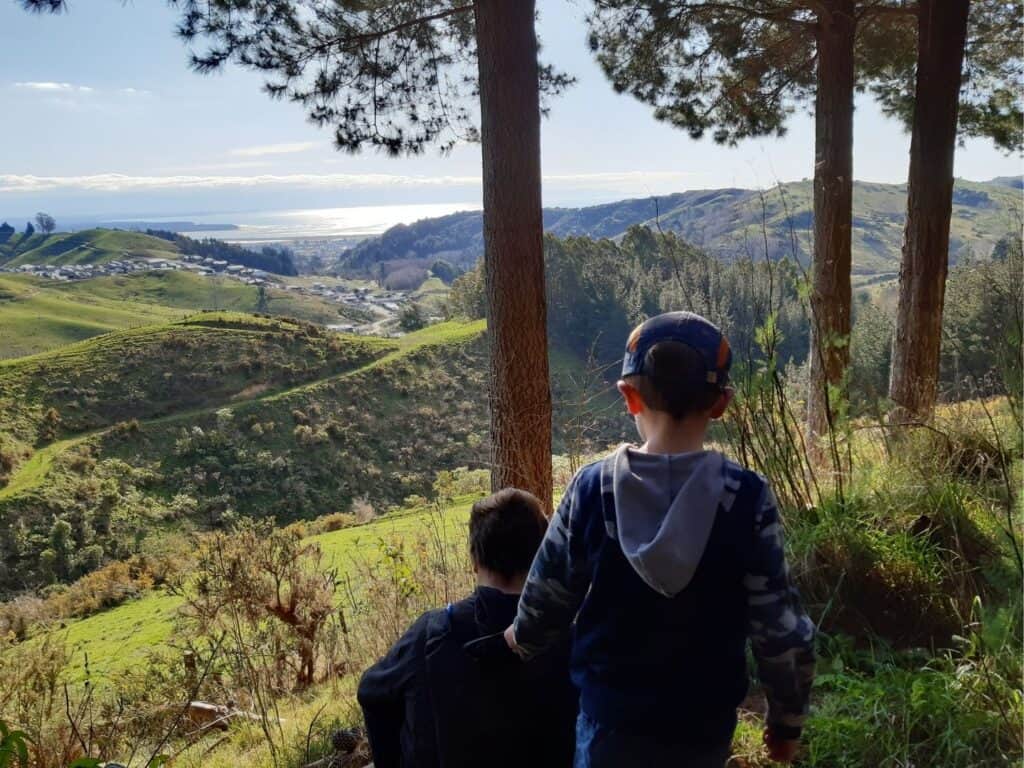
Expat Military Retiree Profile: Early Retirement in New Zealand (With Kids)
This retiree moved to Nelson, New Zealand with his wife and two young children immediately upon retirement from the military. He found a path to long-term residence by starting with a student visa (using his GI Bill) and hopes to make NZ his forever home!
Expat Military Retiree Profile: Moving to Italy on a Student Visa
Jennifer and Jason White realized soon after Jason retired from the Army that a traditional retirement wasn’t for them. After researching their options for a way to live and travel in Europe, they came up with a plan to move to Italy: they enrolled in a language school and obtained study visas!
Expat Military Retiree Profile: Moving to Ireland from the U.S. (With Kids)
Sara and Brian Kift, a dual retired military couple, were searching for a way to move their family of four to Ireland. After several years of trying different paths, they finally obtained an Irish Residence Permit through Sara’s enrollment in a PhD program. She is using her Post-911 GI Bill as a vehicle for her family to fulfill their dream of living in Dublin!
How to Get Started Reimagining Life After the Military
Before you take your first steps thinking outside the box. keep in mind that your military retirement benefits give you a lot of flexibility IF you understand what they are and how to use them. Many of the adventures above are out of reach for the average civilian, but the military benefits you’ve earned make these lifestyles possible.
What the retirees above have in common is that they recognized the flexibility and the opportunities provided by their military benefits. Like us, they took advantage of these benefits to help reimagine a more adventurous and fulfilling life after military retirement.
Since all of their stories involve travel or living overseas, start with this summary of your travel-related military retirement benefits.
You will find that your TRICARE health insurance is one of the most important benefits to understand. TRICARE covers you anywhere in the world, but you must know how your coverage works to get the most out of it.
Before you set off to travel, read what you should know about your TRICARE insurance so that you understand exactly how to use it while overseas.
Also, you should know that upon retirement from the military, you are entitled to one year of free household goods (HHG) storage starting on your retirement date, and you may be able to extend your final retirement move for up to six years. This article explains how that benefit works and how we used it to store our HHG for nearly five years.
We hope the stories above will inspire you to have a conversation with your family and reimagine YOUR life after the military. These stories, like ours, are real and show that transitioning directly into a second career is not your only choice. You have many other possibilities, whether you’re single, you have school-age children, or you and your spouse are empty-nesters. Remember: dream big!
What will your reimagined future look like? Tell us in the comments below!


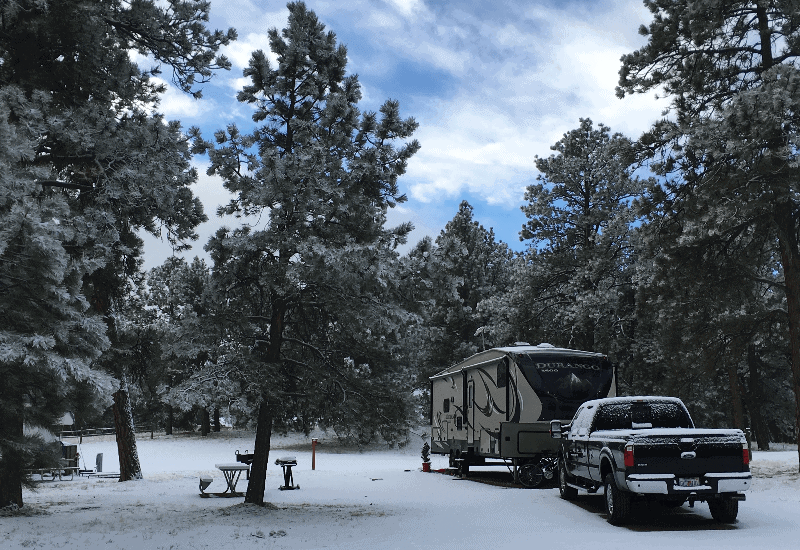
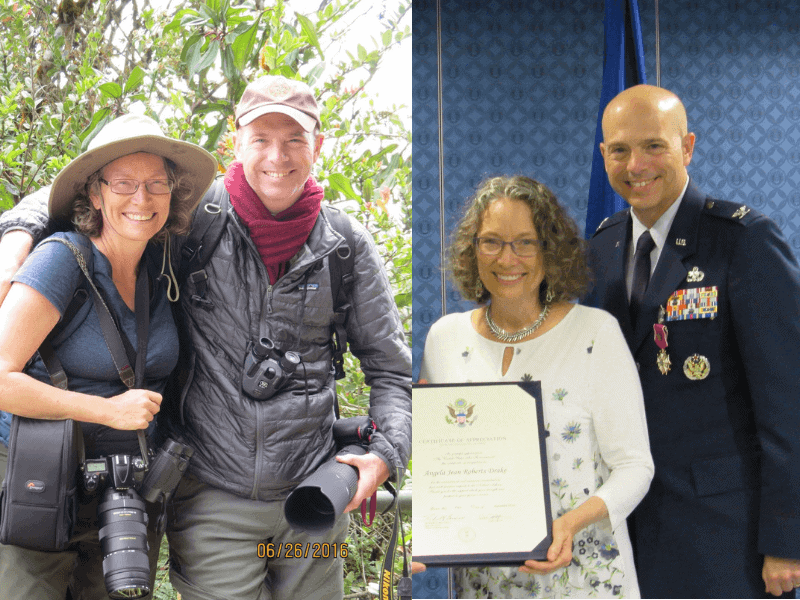


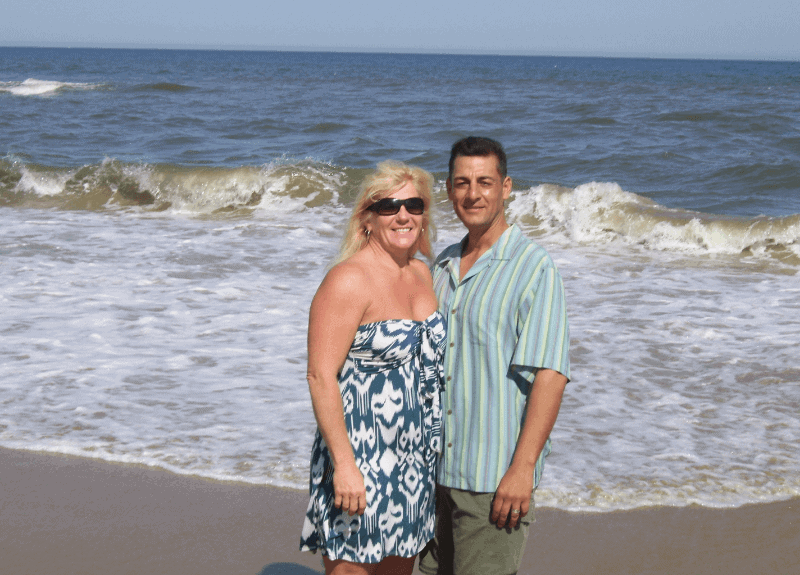






Hello! Could you elaborate a little bit more on how traveling full time for a year ended up being cheaper than living in your home in the US? Thanks!
Great question! Our rent in the DC area was $2800. Then we had all the utilities, phones, and daily expenses associated with such a high cost of living area. When we took off to travel, we had no rent or mortgage and no other tethers to the US except for vehicle storage and insurance. So, nearly all of our expenses were incremental, and with “slow travel” it was not hard to find lodging that was much less expensive than our apartment in DC, plus the overall cost of the places we visited was lower. We saved a lot of money on the air travel by flying Space-A.